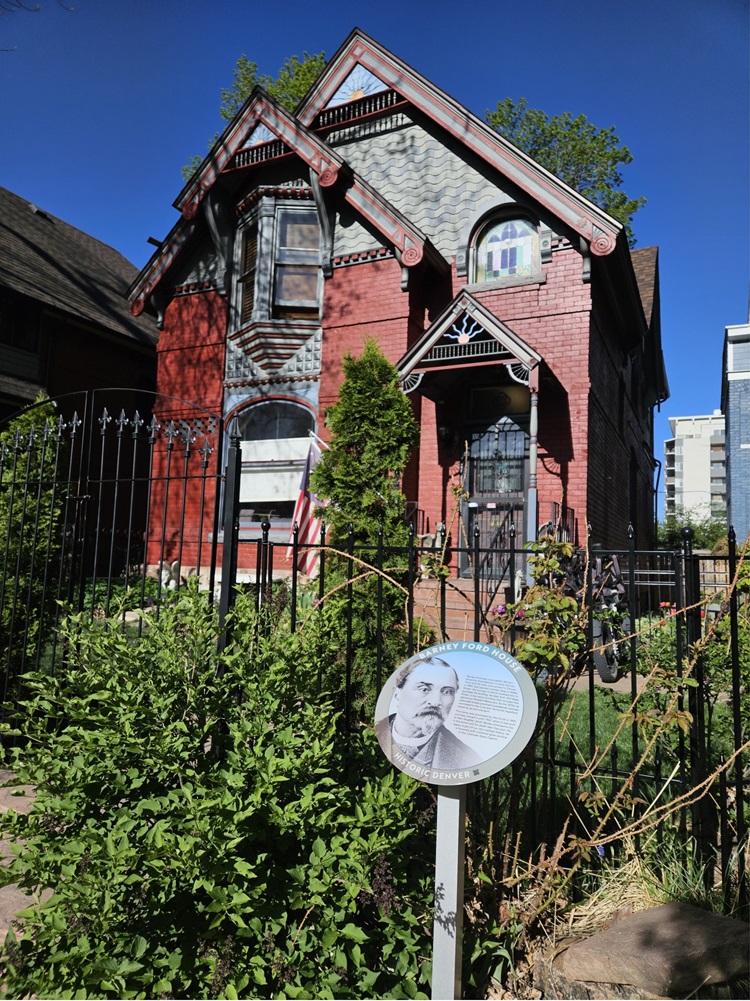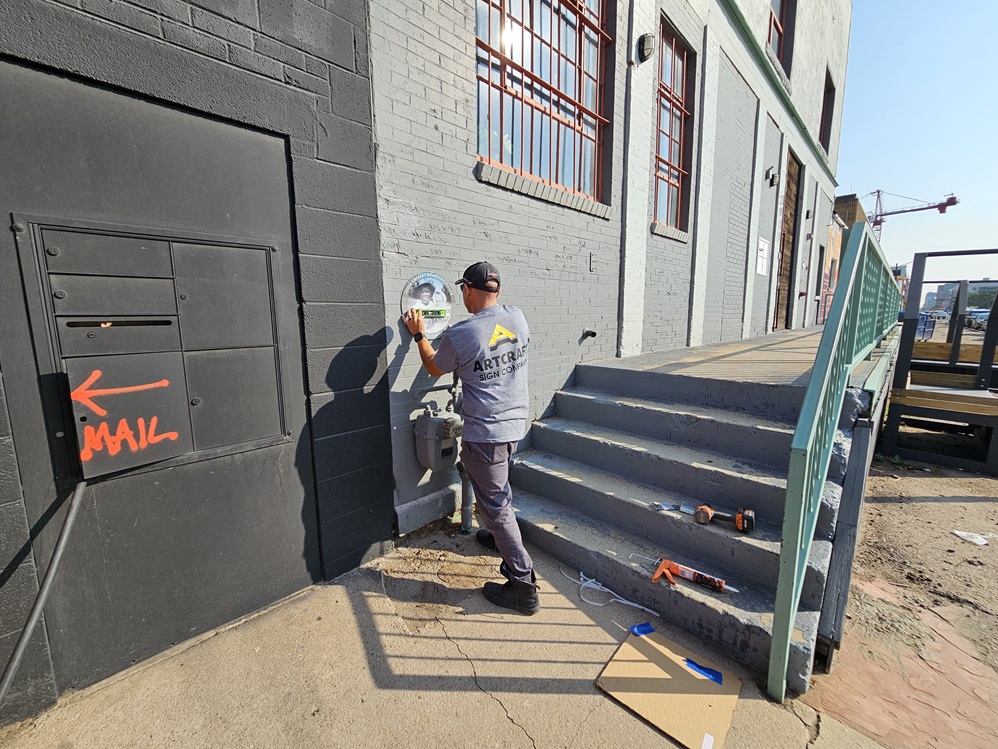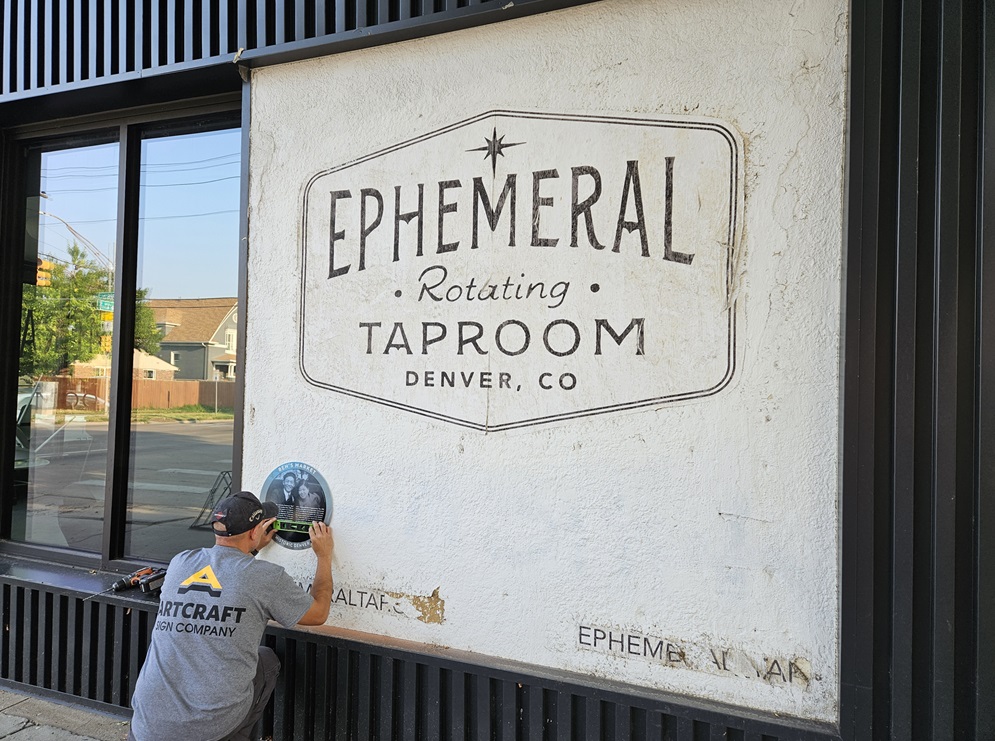50 Actions for 50 Places Plaques Installed
Progress continues on many of our 50 Action for 50 Places sites. After our community nominated 50 sites with special meaning to the city of Denver, which had not previously received preservation attention, we have been hard at work finding preservation actions for each site.
Earlier this month we completed the action for three sites for which storytelling was the primary technique. The former home of Barney Ford, located at 1569 High Street, the former boarding house of Julia Greeley, located at 2911 Walnut, and the former corner store operated as Ben’s Super Market by the Okubo Family at 2301 E. 28th all feature beautiful plaques which share these remarkable pieces of Denver history.

Barney Ford House, 1569 N. High Street
Barney Ford, born into slavery in 1822, freed himself and eventually became a successful African American businessman in Denver. After facing prejudice in Central City and Breckenridge, Ford and his wife Julia settled in Denver in 1860. He opened a barber shop on Blake Street, later rebuilding it after the 1863 fire. By the 1870s, Ford was a prominent figure, serving a term in the Colorado Territorial Legislature.
Research for the plaque revealed that Ford purchased the High Street home in 1890, with the deed in his wife Julia’s name due to tax advantages. Ford lived there until 1900, subsequently renting it out. The property was sold in 1902 to their daughter, Sarah E. Wormeley. Ford passed away in December 1902 and is buried at Riverside Cemetery. His legacy endures in Denver’s history, commemorated by a stained glass window in the Colorado State Capitol.

Julia Greeley Boarding House, 2911 Walnut St.
While hard to recognize today, this commercial building was once the boarding house of Julia Greeley, known as Denver’s Angel of Charity in the 1870s and 1880s. Greeley had been enslaved until Missouri’s Emancipation Act of 1865. Greeley came to Denver in the 1870s and worked for white families, giving all she could to assist poor families in her neighborhood. If her own resources were not adequate she spent time begging for food, fuel or clothing for those who needed it. Julia conducted most of her charitable work at night to avoid embarrassing those she helped. She was also a member of the Catholic Church and was known for her enthusiastic devotion. She became a member of the Sacred Heart Parish in Denver in 1880 and joined the Secular Franciscan Order in 1901, where she was active until her death in 1918. When she died, her body was laid out at Loyola Chapel, 2536 Ogden St, and hundreds came to pay their respects.
 Ben’s Super Market 2301 E. 28th Ave.
Ben’s Super Market 2301 E. 28th Ave.
The Okubo family — Ben and his wife, Shizue (Susan), and children Ruby, Henry, and Helen — were living in Los Angeles when the United States joined World War II. On February 19, 1942, Executive Order 9066 was signed into law, forcibly removing individuals of Japanese descent from their homes, and requiring them to relocate further inland. By May of that year, the Okubo family had sold their business, their home and most of their possessions, and had been moved to temporary housing at the Santa Anita Racetrack among more than 8,500 others. Ben later said he felt lucky the family was placed in a barracks and not in one of the horse stalls. In September 1942 they were moved to the Granada Relocation Center (later called Amache) in southeastern Colorado, where they remained until 1945.
After the war, the family moved to Denver. Ben, Susan, and their eldest children found work and collectively contributed to buying a house at 28th Avenue and Gaylord Street. The family now included two more children, Jim and Jane, born while the Okubos were incarcerated at Granada. Ben returned to his previous line of work: that of a grocer. In 1950, he purchased a store at the corner of 28th Avenue and York Street — 2301 E. 28th Ave. — and opened Ben’s Super Market.
Though Ben sold the store and he and Susan returned to Los Angeles in 1961, the Okubo family is a fondly remembered part of the community. Even after the Okubos sold the store, the name remained, and with each owner Ben’s Super Market continued to provide the neighborhood with access to food as well as a sense of place and community until 2020.
Recently the space sold once again and is currently home to Ephemeral Rotating Taproom. In a nod to the space’s long history, the taproom sells local and hyperlocal products, as well as a cooler of locally brewed beers. The sign that advertised Ben’s Supermarket is currently part of the taproom décor and continues to keep the memory of the longtime name of the building alive.

 Ben’s Super Market 2301 E. 28th Ave.
Ben’s Super Market 2301 E. 28th Ave.